

The very next day after the election, congressional leaders held dueling press conferences in Washington to start the stampede to the fiscal cliff. But December 31 is not a cliff; it’s a slope. Actually, the better metaphor is a showdown between two different visions for the country – a showdown that will not only take place over the next four months, but will dominate debate about the economy for the next four years.
It is true that if Congress allows the tax hikes and spending cuts to be fully implemented, the economy will go into a tailspin, with four million people forced out of their jobs. But that won’t happen on January 1. The impact of both tax hikes and spending cuts take time to accumulate. If Congress acts on taxes early in the year, it can make lower tax rates retroactive to the beginning of the year. Between federal contracts already in place and the time it takes to implement program cuts,
» Read more about: Fiscal Cliffhanger: A Longer View of the Tax Showdown »


Tens of millions of Americans earn under $25,000 a year, and real wages in many of their lines of work have been stagnant for the past 40 years. California entrepreneur and magazine publisher Ron Unz has a suggestion for how to help them: “Perhaps the most effective means of raising their wages is simply to raise their wages.”
Specifically, Unz, in a paper for the New America Foundation, proposes raising the federal minimum wage to $12 an hour. This would, he concedes, raise prices of most things for all Americans and drive some enterprises out of business, but Unz argues that neither of these drawbacks would be terribly severe.
The cost rises would be minimal, and the sectors most threatened—ones that are magnets for illegal employment arrangements between undocumented workers and low-paying owners—impose external costs on society that outweigh their benefits to begin with. “Sweatshops and similar industries,” Unz writes,
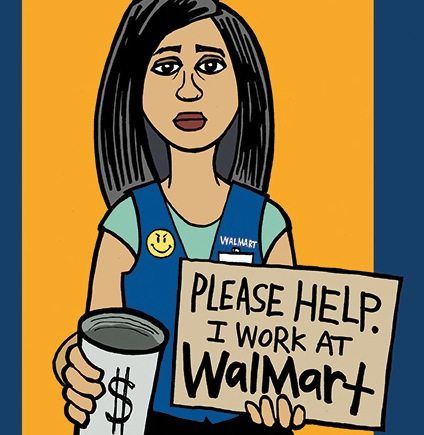
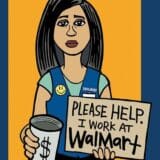
For a list of today’s Walmart protest actions, see our Guide to Black Friday Strikes.


This past June, I walked across the stage in front of thousands of students and family members to receive my bachelor’s degree from UCLA. There was a sea of black robes behind and in front of me, and as I set my feet on the stage and saw the crowd, I felt a rush of excitement. With the diploma in my hand, I felt the weightlessness of unlimited opportunity. Yet I knew that I didn’t get here alone. Two generations before me struggled to give me this chance.
Sitting in the living room at home in Santa Ana, California, my grandfather rocks back and forth as he tells me about his life as a Mexican bracero. Braceros were contract seasonal agricultural laborers who were part of a program between Mexico and the United States that lasted from 1944 to 1962 to help meet the U.S. needs for manual labor. My grandfather would wake up early to go down to the fields.
» Read more about: Three Generations: From Fields to Construction to UCLA »


There are better ways to burnish your legacy than trying to deny firefighters, garbage collectors and other hard-working people a decent retirement. Unless, of course, your name is Richard Riordan.
Since leaving office in 2001, the former mayor has not exactly distinguished himself as an elder statesman of L.A. politics. But at age 82, Riordan seems determined to leave a permanent imprint on the city he once governed by gutting the pensions of some 30,000 city employees.
Riordan is promoting and helping to bankroll a ballot petition that, if it qualifies and passes, would replace the modest but secure retirement plans of future city workers with their poor cousin, the 401(k). Current city employees would theoretically retain their retirement benefits, but these too would almost certainly get the axe because the ballot petition empowers the City Council to eviscerate pensions.
If all this sounds extreme, it is —
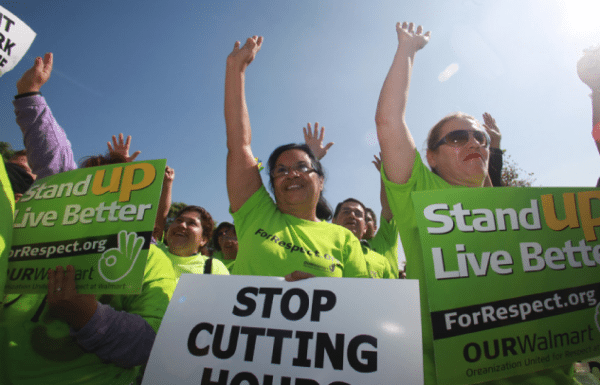
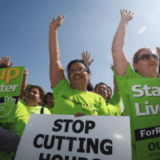
Talk about your perfect storm. Walmart, which in recent years has been raising the danger level for shopping on the day after Thanksgiving, has now created a new attractive nuisance that’s being called Gray Thursday. This is when Walmart stores open at 8 p.m. on Thanksgiving evening, ostensibly to alleviate security and safety pressures on Black Friday, the traditional pre-dawn running of the bulls – er, shoppers – down the stores’ aisles in search of cut-rate prices.
The safety rationale of opening a store six or eight hours ahead of Black Friday is highly debatable; what’s not disputed is that Walmart is ordering in armies of its underpaid employees to work on a night they have traditionally enjoyed as a holiday. But the only tradition this company respects is that of making money on the backs of its mistreated “associates” – workers who are only able to live paycheck to paycheck with the help of food stamps and other government-provided poverty entitlements.
» Read more about: Hello Walmart Shoppers! A Guide to Black Friday Strikes »
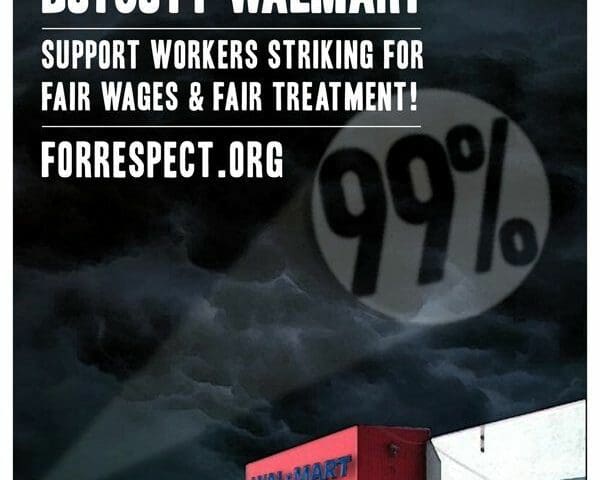
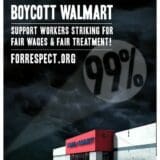
October was a banner month for Walmart workers nationwide. Each week saw more Walmart workers speaking up and going on strike, to protest Walmart’s attempts to silence workers and retaliate against them. The strikes culminated in an announcement at Walmart’s Arkansas headquarters that if the retaliation does not cease, workers will make Black Friday a “memorable” day for the company.
To make Black Friday a success, Walmart workers need the support of community members like you. Our website now features a number of ways to get involved and support Walmart strikers on Black Friday.
» Read more about: Support Walmart Workers on Black Friday »

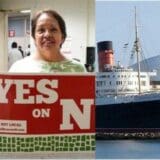
Looking back on the eight weeks of the Long Beach living wage campaign, I could write about the conversations with voters, or the discovery of neighborhoods in a city I thought I knew like the back of my hand. I could go on and on about those I got to know through the canvassing work, the friendships that started and blossomed over the two months that went by so quickly.
But the real story is how we strengthened community in the city of Long Beach.
Yes, in the spring 35,000 people signed petitions supporting the workers in Long Beach’s largest hotels, helping them get one step closer to fair pay, sick leave and tip protection by placing Measure N on the ballot. And this fall not only did we get support from six city council members, we passed Measure N with the support of 63 percent of voters.
» Read more about: Long Beach: Creating Community and Serving the People »
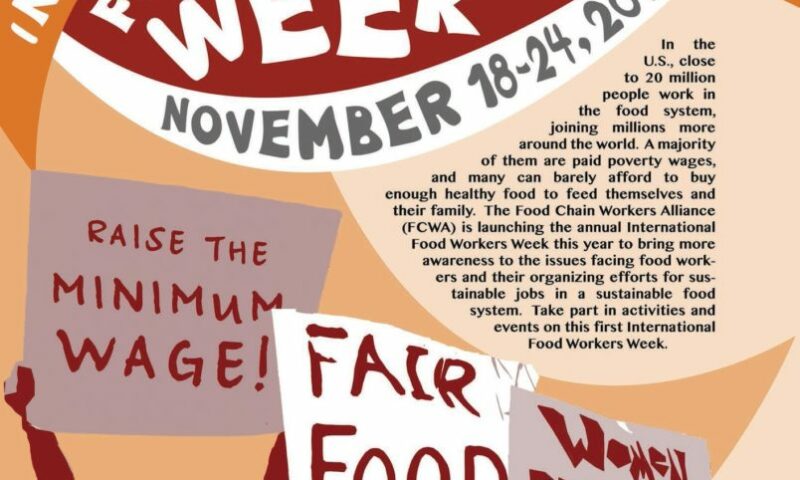
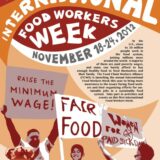
Thanksgiving is a time of year when most people give thanks for their family and their friends, for having a job (if they are lucky to have one) and for many other things in their lives. I am hoping that this year, you also give thanks to the hands that feed us.
The Food Chain Workers Alliance is launching the first annual International Food Workers Week during this Thanksgiving week (November 18-24) to bring more awareness to the hands that feed us – from the Native Americans and African slaves of not so long ago, to the Asian and Latino immigrant farm workers from the middle of the last century, and especially the nearly 20 million people in the U.S. from all races, ethnicities and genders who today ensure that food gets from the farm to our plates.
Yes, you are reading that right. About 20 million people work in America’s food system.
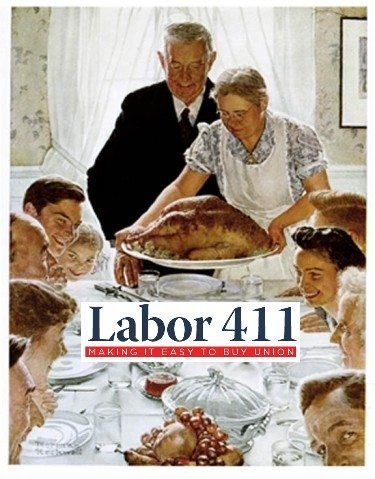
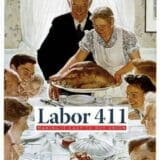
As you prepare to head to the grocery store to pick up your Thanksgiving dinner ingredients, double-check your shopping list to make sure your Turkey Day fixin’s are all union-made in America. Check out some highlights from the Los Angeles County Federation of Labor’s resource site, Labor 411. Here are some of the best union-made Thanksgiving eats and tools from the Bakery, Confectionery, Tobacco Workers and Grain Millers (BCTGM), Machinists (IAM), United Steelworkers (USW) and United Food and Commercial Workers (UFCW).
Appetizers
Turkey
Cookware/Cutlery
Side Dishes
Bread
» Read more about: Labor 411's Union-Made Thanksgiving Shopping List »

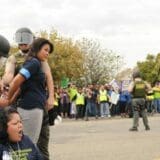
Six community members sat down Thursday in the middle of a major Riverside thoroughfare in front of the Walmart-contracted warehouse where workers are on strike.
The supporters were arrested by the Riverside County Sheriff’s Department while chanting “Si se puede!” (“Yes, we can!”)
“If you were all here in support of warehouse workers alone it would be a noble cause, but this isn’t just for warehouse workers. Your efforts benefit all working people,” the Reverend Eugene Boutilier told the crowd shortly before he was arrested.
Workers—who do not have a recognized union—went on strike Wednesday, Nov. 14, to call for an end to retaliation and unfair labor practices.
“We are standing up for ourselves to create a safe work environment, but we are continuously punished for it,” said Javier Rodriguez, a warehouse worker. “We decided to strike again because we are tired of being singled out and denied work,
» Read more about: Arrests Made in Walmart-Contracted Warehouse Strike »


Former L.A. Mayor Richard Riordan has been in the news lately, arguing that city leaders need to take drastic steps to make Los Angeles more business friendly and get the city functioning again. He has blamed public sector unions for every woe facing the region, including the current financial crisis and potholes on his street in Brentwood.
Mayor Riordan is not just crying in the wilderness. His threat to put a draconian pension-cutting initiative on the ballot played a major part in prompting the City Council last month to hastily adopt its own pension-cutting plan – a plan that almost certainly will be thrown out by the courts as a violation of existing collective bargaining agreements.
Riordan’s resurrection as a major political force begs a fundamental question: How successful was he at bringing business and jobs to L.A. and overseeing scarce public resources when he was running the city?
» Read more about: Richard Riordan’s Wrong Ideas Don't Deserve a Second Chance »
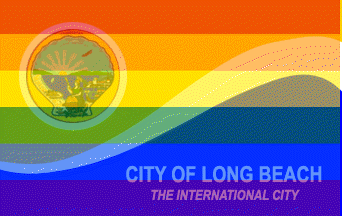

(On November 6, Long Beach became one of three cities in the country to pass minimum wage ballot measures, and the only one to guarantee paid sick leave to workers. This story is the first in a weeklong series of reflections on that important victory.)
Since the times of Supervisor Harvey Milk in San Francisco, lesbian, gay, bisexual, transgender and queer (LGBTQ) communities have worked with labor organizations to improve the lives of people simply trying to stay afloat in the world. Through the Coors beer boycott of the 1970s, Milk not only laid the foundation for a solid partnership between seemingly disparate communities, he created something much larger: a space for individuals, organizers and union representatives to grow, expand and converse. He created the opportunity for bonds to form and for hearts and minds to open and understand how difficult it was in the 1970s — both for working people and LGBTQ people to be afforded respect,
» Read more about: Why LGBTQs Backed Long Beach's Hotel Worker Living Wage »


The best measure of progress is often the desperation of its opponents. So if there were any doubt about the significance of Wednesday’s L.A. City Council vote to transform the city’s multi-family and commercial waste and recycling system, the shrillness of those in the minority offered final proof.
“This is the day justice and democracy died,” declared one detractor. He was outdone, however, by a fellow naysayer, who, invoking the ghosts of Stalinist Russia, bellowed, “Vote straight communist – the life you save will be your own. That’s what’s happening here today.”
Aside from the minions of big business interests following in lockstep with the Chamber of Commerce, there were few traces of authoritarian rule at City Hall yesterday when the Council made its decision to jettison a system that has failed almost everybody. Indeed, democracy seemed alive and well, with an overflow crowd both participating in and witnessing an epic exercise in self-government.
» Read more about: L.A.'s Failed Waste System Sent to the Trash Bin of History »
Millions of dollars in new tax revenue earmarked for the University of California system as part of the state’s recently passed Proposition 30 will instead be routed to major financial firms, because of bad bets made by a Wall Street-influenced UC Board of Regents.
Over the last decade, tuition and fees for undergraduates in the UC system have tripled, adding enormous debt burdens to UC graduates and pushing lower-income students into the already overburdened state college and community college systems, or out of higher education altogether. Members of the UC Board of Regents, which governs the system and which approved the tuition hikes, have blamed the increases on the bad economy and on politicians.
However, according to a new report written by five doctoral students at UC Berkeley, in the years preceding the 2008 financial collapse, members of the Board of Regents themselves had overseen “a qualitative shift in the financial practices of the University of California” by employing the same kinds of exotic financial instruments that precipitated the meltdown on Wall Street — primarily,
» Read more about: Proposition 30 Millions Already Headed to Wall Street »
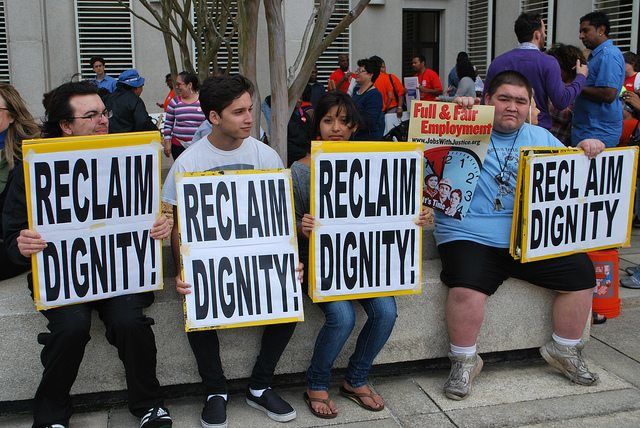
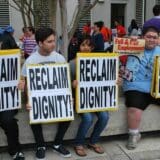
Analysis of swing-state voting in last week’s election demonstrates that the massive on-the-ground mobilization of union members and volunteers directly aided Obama and other pro-labor candidates in carrying Ohio, Nevada and Wisconsin. Unions prevailed in beating back anti-labor legislation in California and Wisconsin, and succeeded in three separate living wage campaigns.
On the national level, will labor remain vigilant and hold Obama and other newly elected Democrats accountable to workers? AFL-CIO President Richard Trumka vows that this will be the case.
In an interview with Salon, Trumka is quoted as saying:
“One thing that we’re doing different than we’ve ever done before … is we’re not dismantling our program today.” Instead, he promised, it will move “from electoral politics to advocacy, and from advocacy to accountability.”
As an example of the continuing momentum for labor advocates, Trumka points to Ohio, where “AFL-CIO members are 83 percent white.
» Read more about: Victorious Labor: Celebrations Before the Storm? »


Over the last couple of years, I’ve blogged about waste reform in the City of Los Angeles. Following is a summary of where we are with the proposed waste reform so folks just tuning in, and those who have followed the twists and turns, have one central place for background as our the city council takes up this important issue in the coming weeks.
Disposal of waste is perhaps one of the most pressing environmental issues the City of Los Angeles faces. Los Angeles sends approximately three million tons of trash per year to landfills. This practice exacts a large environmental toll. The City has already promised to become a zero waste City by 2030. This entails interim goals of achieving 70 percent diversion from landfills by 2013 and 90 percent by 2025.
L.A.’s commercial and multi-family sectors are responsible for approximately 70 percent of the waste the City of Los Angeles send to landfills,
» Read more about: Transforming L.A.'s Trash Collection for the Next 50 Years »
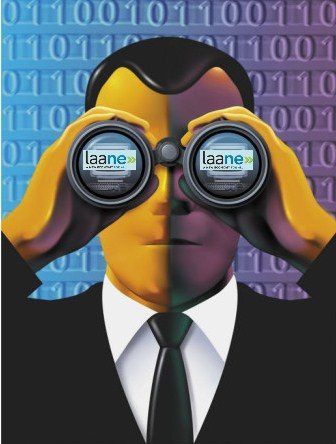

Remember the spring and summer of 2011, when the Los Angeles Alliance for a New Economy (LAANE) was mysteriously tracked by MB Public Affairs? Beginning in May, 2011, this right-wing “political ops firm,” led by Karl Rove operative Mark Bogetich, launched a massive investigation into LAANE, requesting thousands of documents from virtually every elected or appointed official in L.A. County. With lots of public support, LAANE fought back and, after several months of press releases, petitions, blog posts and other “reveal thyself” exhortations to MB’s secret funder, the inquiry suddenly stopped. According to City Hall insiders at the time, MB’s requested documents were left uncollected and LAANE activists and supporters were left wondering who would possibly have wanted to spend an estimated $50,000 to find dirt on a nonprofit advocacy group that makes no secret about what it stands for.
Over the past year, the mystery of the secret investigation has continued to puzzle us.
» Read more about: Who Was Behind the Secret Investigation of LAANE? »
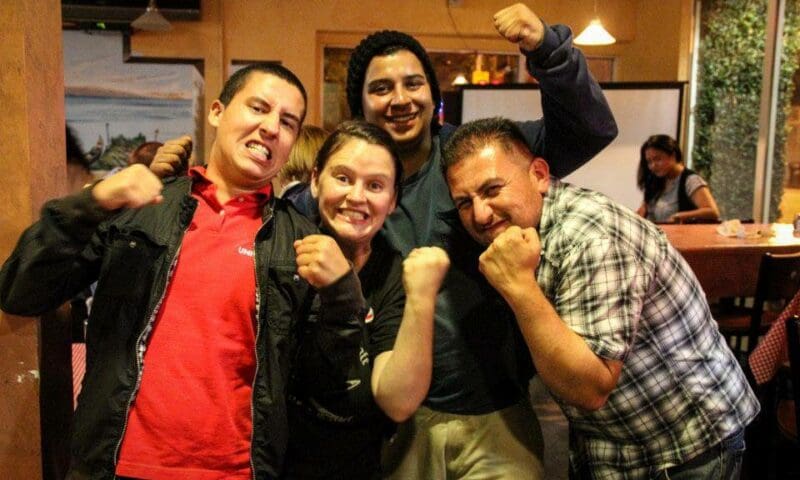

Two thousand workers who clean the rooms and serve the food at hotels in Long Beach, California had special cause for celebration election night. They will finally earn a living wage and be able take a sick day without risking a paycheck or a job.
“I have said all along that the second thing I would do when Measure N passes is take my family off of public assistance,” said Maria Patlan, a 10-year housekeeper in Long Beach’s hotel industry. “But the first thing I will do is a dance of joy.”
Maria and scores of workers like her helped lead the diverse Long Beach coalition that organized for months to pass the ballot initiative that became known as Measure N. It establishes a minimum wage of $13/hr (about $2,000 a month) in Long Beach’s hotels employing 100 or more, guarantees workers can earn five sick days a year and protects their tips.
» Read more about: Long Beach Hotel Workers Win Living Wages, Paid Sick Days »
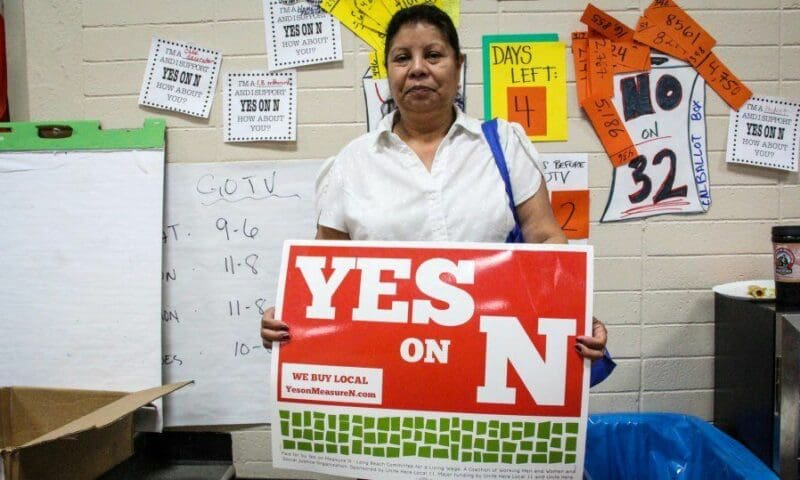
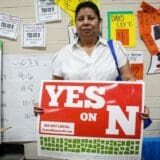
Something extraordinary happened Tuesday in Long Beach. A city long dominated by an ideologically driven business sector and marked by token community participation, embraced a living wage measure. With a resounding 63 percent of the voters in favor of Measure N, we can clearly state that the Long Beach community stood in favor of fairness and justice November 6. From a practical perspective it means lifting 2,000 Long Beach workers above the poverty line, perhaps a two-bedroom apartment for a family of four, or the “luxury” of taking a paid day off to attend to a sick child or relative. It also lays the foundation for renewed economic growth by providing additional income that will be recycled through the Long Beach economy.
How did this happen in a city controlled by business interests who said a living wage should not, could not and would not pass? By acknowledging four things:
» Read more about: Election 2012: The Battle for Living Wages in Long Beach »